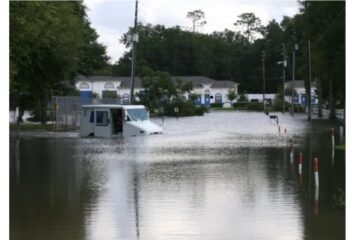For many years, my idea for retirement was to open a bar/restaurant in an effort to stay busy, have a social life, and eat and drink for free. However, even though I knew as an owner I would need to be there all of the time and that it would provide socialization, it really takes more than I would want to invest in my retirement years. Plus, there is an enormous amount of money to be paid for a liquor license and the liability insurance it takes to serve alcohol.
Recently, I have rethought that idea, and it has morphed into possibly investing in a pizza franchise in my retirement instead. Not only would it require fewer employees and less hours, but it would cost far less money in insurance and licensing as I would not serve alcohol.
According to the International Franchise Association, “While food delivery app purchases continue to grow, franchise restaurant concepts with in-house delivery are likely to have a competitive advantage due to lower costs, smaller delivery fees, and faster service due to delivery staff being on-call at the location. These advantages can also translate to higher customer satisfaction due to the level of care an employee will take with an order compared to a contracted at-will delivery app driver.
This familiarity of service from before the pandemic, paired with the format’s built-in delivery advantages, gives pizza franchisees a strong edge,”.
Average pizza shop owner income
Even though I am considering doing this in my retirement years, I still want to make a decent income from this venture. After working in the restaurant business for twenty-some-years, starting at the young age of fourteen as a salad girl in an Italian restaurant, until I (finally) graduated college at twenty-nine as a head server and bartender at an upscale tavern in Northville, Michigan – I feel I have solid experience and understand that restaurants do not necessarily make a large fortune.
However, I do have some ideas on why most restaurants seem to fail. My theory is that they are missing the following ingredients (ha-ha, no pun intended):
- Restaurant experience
- Skilled employee training
- Knowledgeable employee vetting
- Marketing experience and initiatives
- Public relations efforts and experience
- Solid restauranteur mentorship
- Complete operational support from the franchise
If I were to invest in a franchise, it would be essential for them to provide support from equipment procurement to inventory management and staff training, with an experienced team to assist with all the operational requirements.
Furthermore, they would need to be committed to the success of their pizzeria owners. As a franchisee, I would require ongoing support and comprehensive training to ensure I have all the tools and business resources I need to thrive. From site selection and store design to marketing strategies and operational support, I would insist on having a dedicated team to guide me every step of the way on my journey to pizzeria ownership. Thankfully, I also worked at several pizzerias during my day, including two famous places in the Detroit market: Little Caesars Pizza and Buddy’s Pizza.
Toast reports that, “The PMQ Pizza Power Report states that there were 35,531 pizza shop chain locations generating a total of over $27 billion in 2022. This means the average franchise store made nearly $766,000 in annual revenue,”. *(Toast is software and hardware used by restaurants to take orders, process payments and manage the business).
After I graduated college, I worked in the public relations sector, managing several food clients (go figure!). Today, I work in marketing and advertising, so I have five of the seven imperative skills I believe are needed to run a successful restaurant business. And guess what one of our areas of expertise is? That’s right, food. More specifically, food photography. I guess I will always have the food sector in my blood!
Restaurant owner skills
Working at a variety of restaurants, two specific places had exceptional owners that I would attempt to emulate. They knew what it takes to run a prosperous restaurant operation and were fabulous examples.
One woman recently retired from a highly profitable career and has a daughter closely following in her footsteps. The other is a husband-and-wife team who still run five local, extremely lucrative, and highly profitable restaurants. The lessons learned from them were how to train and treat employees. For example, here are a few ways they ensure their businesses run efficiently:
- Extensive training for waitstaff, including having them get TIPS certified (TIPS certified means you have completed a Training for Intervention ProcedureS (TIPS) training course. TIPS is a program that teaches people how to prevent alcohol abuse, underage drinking, and drunk driving)
- Holiday party where the owners and managers serve dinner and give gifts to the kitchen crew, bartenders, and waitstaff
- Summer trip to Cedar Pointe with all expenses paid, including the bus trip loaded with food and drinks
- Fall trip to cider mills, all expenses paid, including the bus trip loaded with food and drinks
- All servers and bartenders are divided into teams, with one manager as the coach
- On a monthly basis, the team with the highest sales wins an all-expenses-paid night out to a competing restaurant, where they secretly critique and bring back ideas to implement into the restaurant’s strategies
Owning a restaurant requires a unique blend of skills, including leadership, communication, and menu planning, while excelling in multitasking and problem-solving. Mastery in financial management, inventory control, and marketing is essential, alongside food safety and culinary arts expertise. Success hinges on exceptional customer service, operations management, human resources, and the ability to adapt with attention to detail.
Is a pizza franchise a good investment?
Investing in a pizza franchise seems like a promising venture, especially with its lower operational costs and built-in delivery advantages over other dining options. With a solid support system, thorough training, and a proven business model, a pizza franchise can be a rewarding investment, blending social engagement and reliable income in my retirement. However, success hinges on effective management and a commitment to excellence in every aspect of the business.



0 Comments